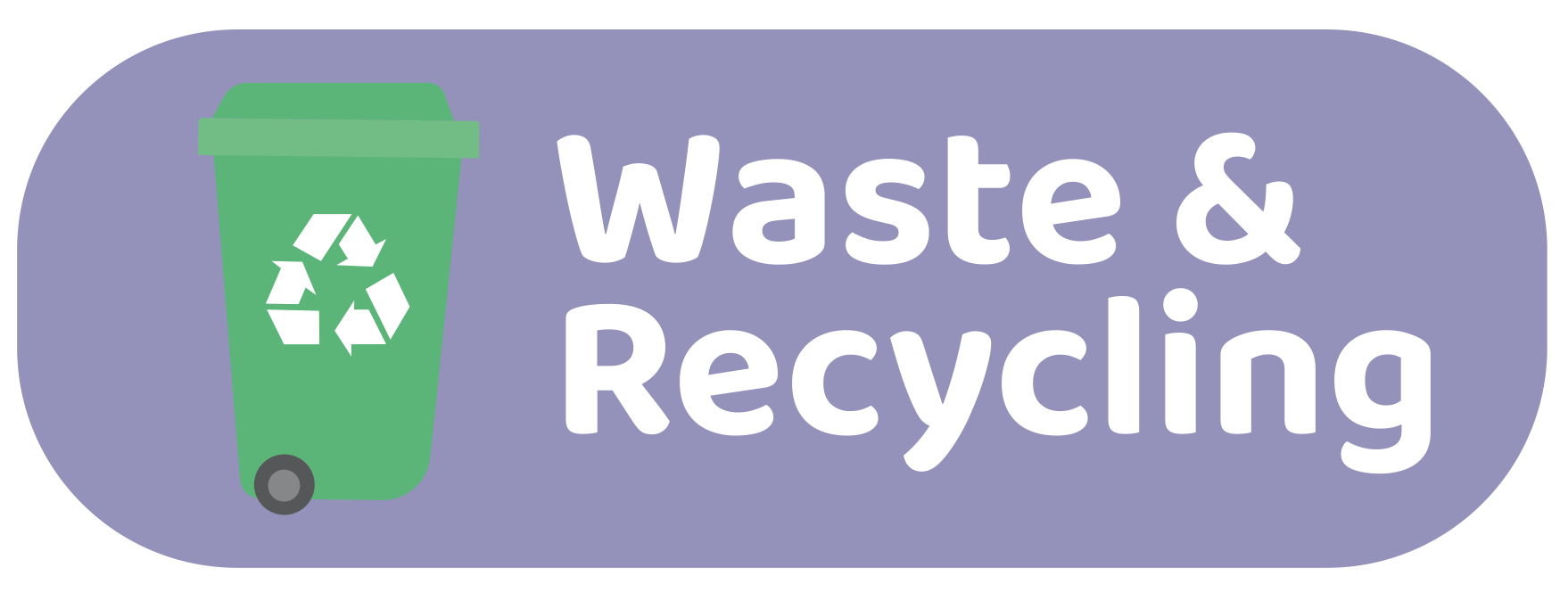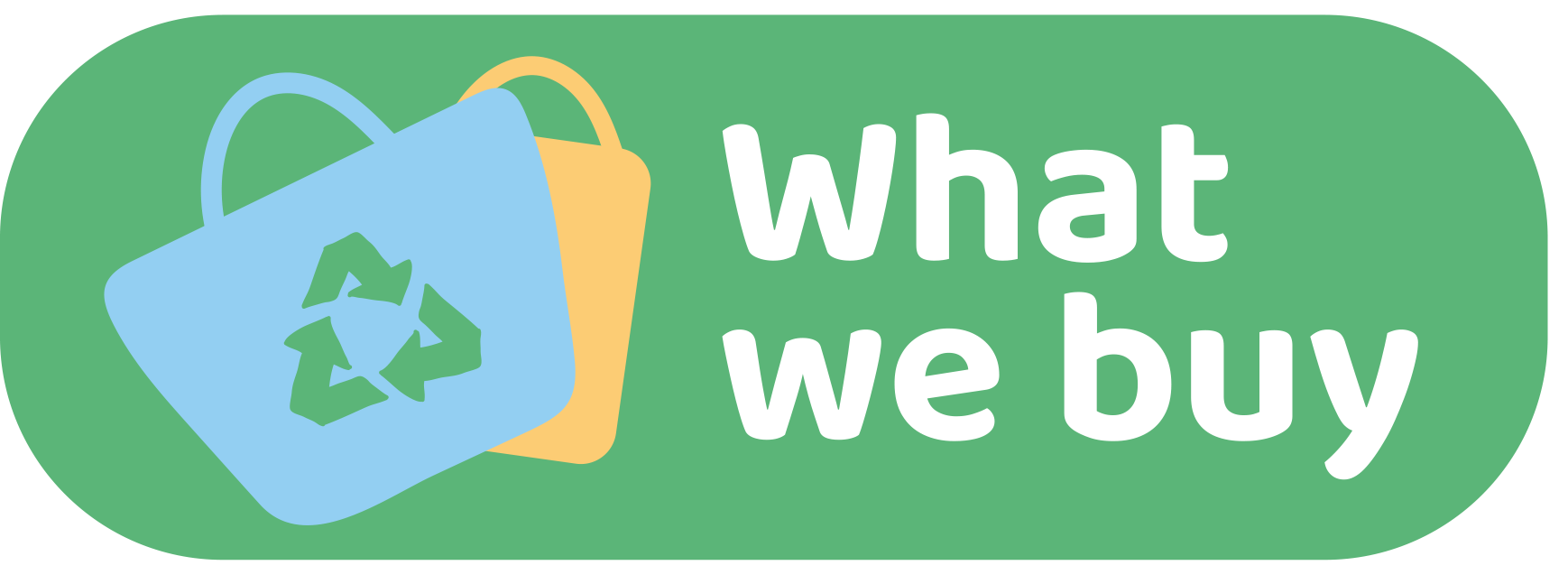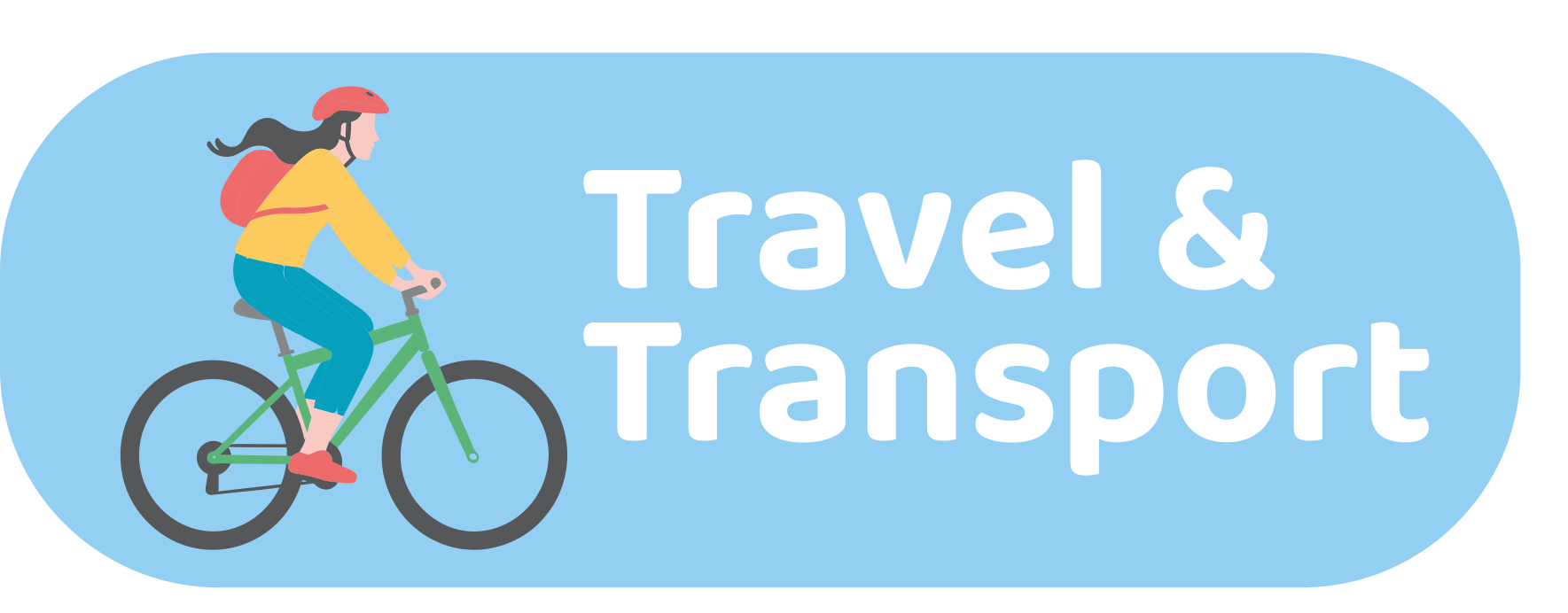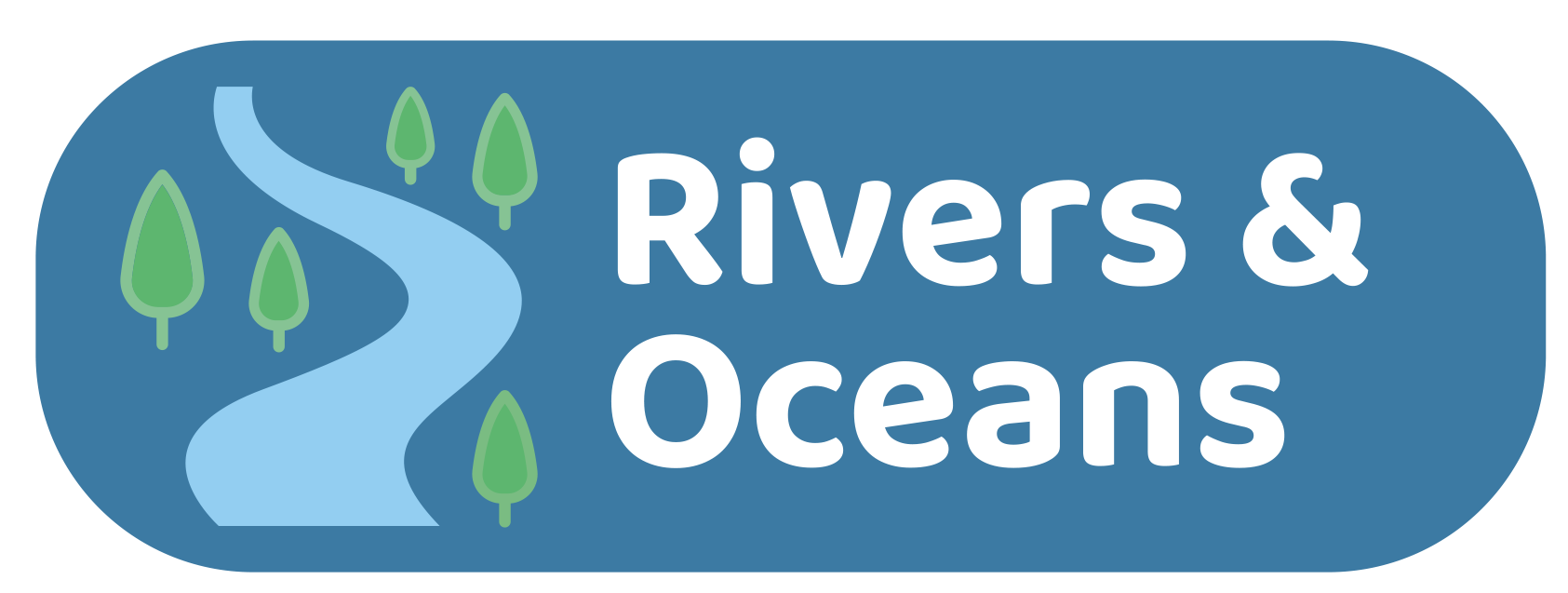Tackling climate change is really important, because if the planet’s temperature rises by 2°C we face risks of drought, flood and poverty – the impact will be massive for hundreds of millions of people as well as for nature. In Monmouthshire we could see more extreme weather events, water shortages, droughts, species loss and increased risk of flooding.
or click on the tiles below to explore more.
Climate & Nature Emergency Monmouthshire
In 2019 Monmouthshire County Council declared a climate emergency. The Council are working hard
to reduce our contribution to climate change, by reducing our energy use, changing to electric
vehicles and installing solar panels, as well as working with communities to reduce carbon emissions
across the county. We also need to be able to adapt to the impacts that climate change is already
having.
You can read our latest Climate and Nature Emergency Strategy and action plans which were
adopted in May 2024 here:

Why is it important?
When humans burn more fossil fuels, like coal, oil and gas, we produce more greenhouse gases like carbon dioxide that are making climate change worse. To reduce our impact on climate change, we need to use less energy, be more energy efficient and use more renewable energy. Rising fuel costs also mean that this is really important to help people struggling in a cost of living crisis.
What is the council is doing?
- 99% of Monmouthshire County Council’s buildings use energy from renewable sources.
- The council has a 5MW solar farm and around 30 council buildings have solar panels.
- Street lighting has been upgraded to energy efficient LED lighting.
- The Re-fit programme is reducing energy costs and carbon footprint of council building, with maintenance and refurbishments to reduce energy use.
- The council has called for its pension fund to divest from fossil fuel investments and have seen the proportion of the fund invested in such firms decline, and more invested in low carbon projects.
What can I do?
Saving energy
- Make sure you have got draft proofing, loft and cavity wall insulation in your home – save money and energy. https://www.energysavingtrust.org.uk/home-insulation
- Get details of Monmouthshire energy helpline and other support that can help you here. https://www.monmouthshire.gov.uk/housing/energy-advice-and-support-for-households/
- Simple things like switching off the lights, not leaving things on standby and only boiling the water you really need in the kettle can really make a difference. https://www.energysavingtrust.org.uk/home-energy-efficiency
- Understand how your heating controls work and using thermostats properly can save energy.
- If you use a dishwasher, make sure you only use it when full.
- Make sure your washing machine in full and dry clothes on a line rather than tumble dry if you can.
Using Renewable energy
Consider moving your savings or pensions into ethical and socially responsible funds. https://www.finder.com/ca/ethical-savings-accounts
Switch your energy supplier to a renewable energy contract. https://www.moneysavingexpert.com/utilities/cheap-green-energy/
Find out whether you could install solar panels or another renewable energy in your home. https://www.energysavingtrust.org.uk/renewable-energy

Why is it important?
Natural resources, such as green spaces, water, wildlife, plants and soil provide our most basic needs, including food, energy and security. Human life depends on a flourishing eco-system. Plants, trees, peatland and oceans are also really important for locking away or “sequestering” carbon. Green spaces help people and the economy to thrive, while reducing flooding, improving air quality and supplying materials for construction. However, they are also under pressure from development and climate change.
What is the council doing?
- Nature isn’t Neat is a project that aims to raise awareness about the importance of pollinators, and the actions that we can all take to support them. https://www.monlife.co.uk/outdoor/green-infrastructure/nature-isnt-neat/
- The council has produced a Nature Recovery Action Plan which sets out actions to help reverse the decline in biodiversity and build ecosystem resilience. https://www.monlife.co.uk/outdoor/green-infrastructure/local-nrap-and-gi-strategy-consultation/
- Monmouthshire is a part of Gwent Green Grid Partnership, which aims to raise climate and nature awareness, deliver projects to create and improve green spaces and increase the resilience of the environment for wildlife and people. https://www.monlife.co.uk/outdoor/green-infrastructure/gwent-green-grid-partnership/
- Monmouthshire has declared a Motion for the Rivers and Ocean which sets out how the Council will contribute to work with other partners to look after and value our rivers and ocean.
What can I do?
- Get involved in local green spaces groups.
- Leave part of your garden wild, make habitats for wildlife and plant trees to absorb carbon dioxide. https://www.wildlifetrusts.org/actions
- Join a “Friends of” group to get involved in sustainable green space management, or find out about local groups who are doing community gardening and growing. https://www.farmgarden.org.uk/
- Get involved in community allotments or establish a new allotment and have a go at growing your own fruit and veg. https://www.rhs.org.uk/advice/beginners-guide/vegetable-basics
- Plant trees.
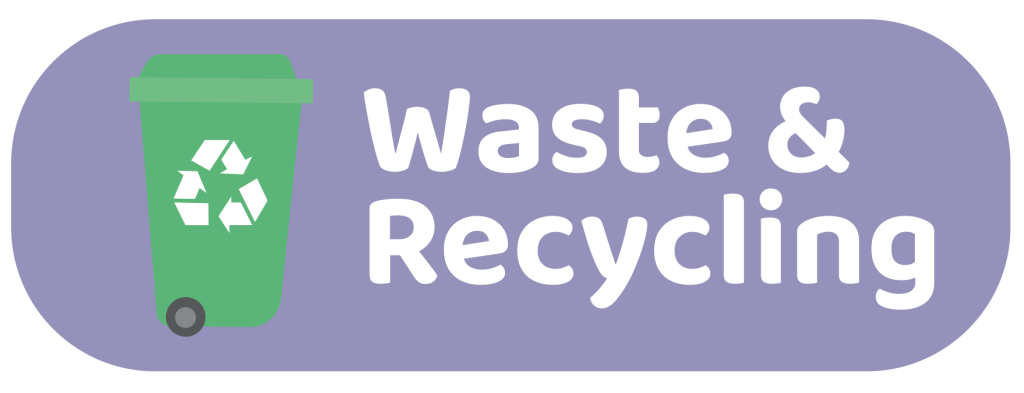
Why is it important?
A lot of energy goes into making the products that we use. By keeping those products in use for as long as possible, by preventing waste in the first place, then reducing, reusing, repairing and lastly recycling, we will reduce energy use and carbon and save precious finite resources.
What is the council doing?
- Monmouthshire has one of the best recycling rates in Wales at around 70% and is moving from disposable to reusable recycling bags to reduce single use plastics.
- Food waste goes for anaerobic digestion which creates energy and soil fertiliser. Garden waste is composted locally in Abergavenny
- The council has two Reuse Shops in Monmouthshire, at Llanfoist and Five Lanes that sell items that have been saved from disposal at Recycling Centres.
What can I do?
- Community Fridges are a great way of reducing food waste from your local supermarket: https://www.monmouthshire.gov.uk/money-matters/summer-savings/
- Find out about and use all the different types of recycling that Monmouthshire does. https://www.monmouthshire.gov.uk/recycling-and-waste/
- Get recipes and tips for using food and reducing food waste. https://lovefoodhatewaste.com/
- Use refillable water bottles, and reusable containers for your lunch. https://refill.org.uk/
- Look after your clothes, repair them and don’t buy disposable fashion. https://www.loveyourclothes.org.uk/
- Reduce the amount of “stuff” you buy and then rarely use by borrowing from your local Library of Things https://monmouthshire.benthyg.cymru/ , and getting items repaired at a Repair Café. https://repaircafewales.org/
- Donate unwanted clothes, bric-a-brac, books, furniture etc. to your local charity shop, or textile recycling scheme to reduce landfill and help raise money.
- Why not do a litter pick in your neighbourhood? You can borrow the equipment for free. https://keepwalestidy.cymru/caru-cymru/litter-picking-hubs/
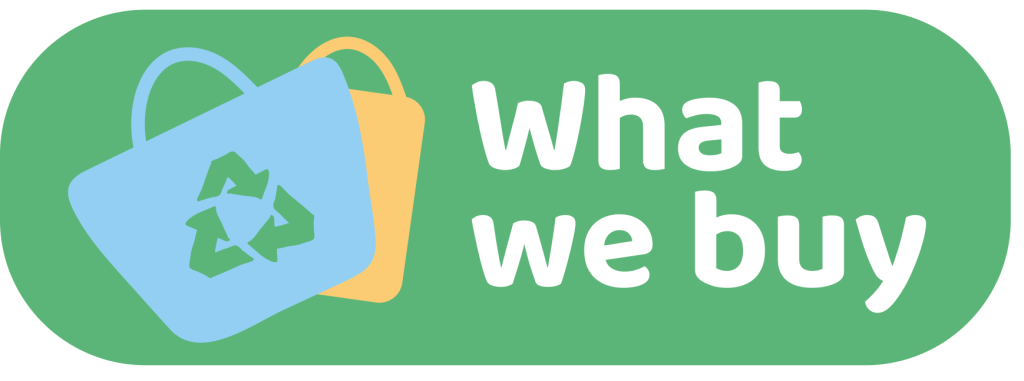
Why is it important?
Did you know that lots of our carbon emissions come from not just the obvious things like petrol or heating, but from the things we buy. Energy goes into making, packaging and transporting the products and foods that we use and all of this has a big impact on our carbon footprint. In fact more than half of Monmouthshire County Council’s emissions come from the goods and services that we buy!
What is the council doing?
- The council has worked with community groups to support the launch of Libraries of Things, which mean that people can borrow rather than buy items they only use occasionally, and repair cafes so that things can be fixed rather than thrown away.
- Many Councils building now have refill stations so there are opportunities to refill water bottles, negating the need for single use plastic bottles https://www.refill.org.uk/
- Monmouthshire is a Fairtrade county. As well as meaning that farmers and growers get a fair price for their work, buying Fairtrade means better environmental standards and a guarantee that there has been no tropical deforestation.
What can I do?
- Save packaging by refilling at Zero waste shops.
- Think about how much you buy and whether you really need it.
- When you are buying food think local, in season, reduced and recyclable packaging.
- Support your local charity shop and buy second hand, or visit one of Monmouthshire’s two Re-use Shops https://www.monmouthshire.gov.uk/recycling-and-waste/reuse-shop/
- Reduce the amount of “stuff” you buy by borrowing from your local Library of Things https://monmouthshire.benthyg.cymru/ , and getting items repaired at a Repair Café. https://repaircafewales.org/
- Consider buying “experiences” for people as gifts, or charity gifts that support sustainable projects, rather than buy gifts that aren’t wanted or needed.
- Take along re-useable cup, bag, water bottle.
- Look for logos like Fairtrade, MSC on fish, FSC on paper and timber, Soil Association, or Sustainable palm oil when shopping.
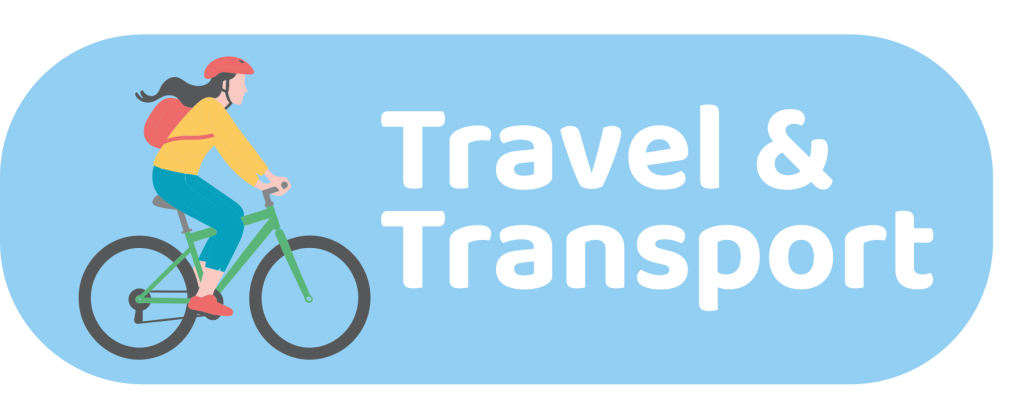
Why is it important?
As a rural county, with limited public transport options, transport is a large part of Monmouthshire’s carbon footprint overall. Encouraging and making it easier for people to walk and cycle for short journeys, rather than use a car reduces carbon emissions from fossil fuels and also has health benefits. Public transport can make a big difference to reducing carbon footprints, but where that is not an option alternative vehicles such as hybrid, electric or hydrogen help to reduce emissions.
What is the council doing?
- The council is growing its fleet of electric buses, cars and vans, and are piloting new electric community meals vehicles which use hydrogen for the ovens.
- We are rolling out more electric vehicle charging points in car parks and council buildings.
- Agile working and use of video conferencing is reducing unnecessary travel.
- Using Active Travel funding to provide walking and cycling routes, and delivering road safety and scooting and cycling lessons in school.
- Working hard to increase the provision of public transport across the county through the delivery of the Local Transport Strategy.
What can I do?
- Check out Traveline Cymru https://www.traveline.cymru/ or local bus company websites to see whether public transport is a viable option for your journey.
- Try and walk for short journeys, and reduce carbon while getting fit at the same time!
- Find out about local cycle routes and cycling groups and get on your bike. https://www.sustrans.org.uk/national-cycle-network/
- Try out an electric bike if you live somewhere hilly or could do with a bit of an extra boost! https://www.which.co.uk/reviews/electric-bikes/article/electric-bikes-everything-you-need-to-know
- Team up with parents and your local school to develop a walking bus to walk your little ones to school.
- Get involved with local public rights of way volunteering opportunities. https://volunteer.monmouthshire.gov.uk/
- Ask your employer if they can provide showers and lockers so that you can cycle to work.
- Try and car share when you can, to save fuel and money. There are schemes to help. https://liftshare.com/uk
- If you are thinking of replacing your vehicle, think about whether an electric car would work for you. There are grants which can help. https://www.energysavingtrust.org.uk/transport/electric-cars-and-vehicles/electric-vehicles

Why is this important?
In order to tackle climate change all of us need to play our part by reducing carbon emissions. Monmouthshire County Council produces less than 2% of the county’s carbon emissions, so we need everyone to do their part to reduce emissions county wide.
This section gives information about the work carried out by Monmouthshire County Council and the different ways communities can learn more about climate change but also take practical steps to make a difference.
What the council is doing?
- Carbon Literacy training has been introduced as a pilot for community groups, and is hopefully going to be offered through Community Learning.
- The Community Climate Champions is a network of groups and individuals who meet every quarter to share news and information on Climate Change. The network encourages a closer relationship and joint working on climate change projects between Monmouthshire County Council and community partners.
- The One Planet Centre is a wonderful education facility based at Llanfoist Household Waste Recycling Centre. The Centre is great space to learn about rubbish, recycling and all things environmental. https://www.monmouthshire.gov.uk/recycling-and-waste/one-planet-centre/
- Monmouthshire schools are actively promoting conservation, recycling and ‘plastic free messaging’. Many schools in Monmouthshire are part of the eco schools programme. https://keepwalestidy.cymru/eco-schools/
What can I do?
- Get involved with one of the many voluntary groups in Monmouthshire doing great work on climate change.
- Get involved with your school’s Eco Committee, or if your school isn’t an Eco School, find out more and ask if they would consider it. https://keepwalestidy.cymru/eco-schools/
- Does your workplace have recycling or other environmental measures in place? Why not try and start something.
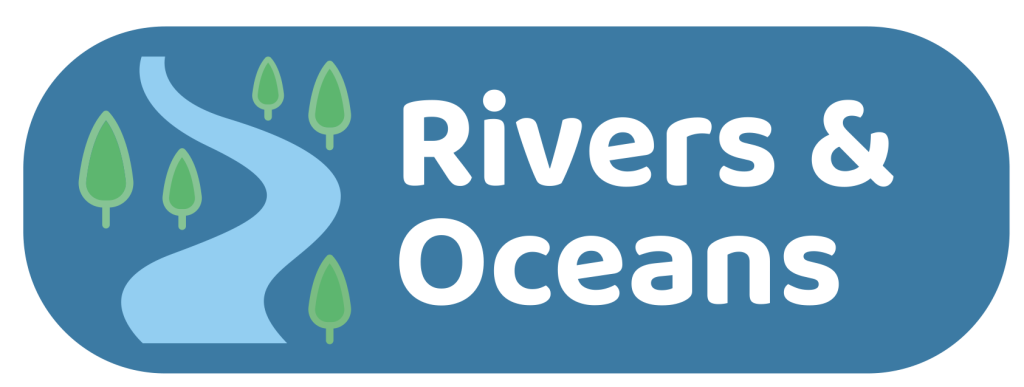
Why is this important?
Rivers and the ocean are at the heart of our heritage and economy. A healthy ocean is important for regulating climate and absorbing carbon dioxide. Monmouthshire’s rivers are of huge importance for wildlife, recreation and tourism. However, our rivers and oceans are in crisis, as a result of pollution from sewage, agricultural practices, pressure from development, plastics and rising temperatures.
What is the council doing?
- Monmouthshire has declared a Motion for the Rivers and Ocean which sets out how the Council will contribute to work with other partners to look after and value our rivers and ocean.
- Colourful recycling “on the go” bins have been installed in riverside locations in Monmouth and Chepstow to reduce litter entering the rivers.
- The council has been working with three local farmers to introduce leaky debris dams and ponds to slow down water flow as natural flood management.
- Some local farms are getting mentoring on regenerative agriculture, which will reduce pollution and soil erosion.
- The council is part of partnerships working to improve water quality on the Rivers Wye and Usk, and look after the Severn Estuary.
What can I do?
- Remember the 3 Ps when using the loo – only flush down pee, poo and paper, nothing else!
- Don’t drop litter and always bag and bin dog poo.
- Waterbutts save water and also slow the rate that rainwater reaches the drains, reducing flood risk and the risk of sewage being released.
- Don’t tip chemicals down the drain! Household chemicals, oil and paint are all accepted at Monmouthshire’s Household Waste and Recycling Centres. See https://www.monmouthshire.gov.uk/recycling-and-waste/recycling-centre-accepted-items/ for a full list of what they take.
- If you spot pollution, you can report it to Natural Resources Wales on 0300 065 3000 or https://naturalresources.wales/about-us/contact-us/report-an-incident/
- If you’d like to get involved in monitoring water quality, why not join a citizen science project. https://friendsoftheriverwye.org.uk/citizen-science https://www.savetheriverusk.org/
- Look out for the Marine Stewardship Council blue tick fish logo on seafood, so you know that is sustainable and from healthy, wild fish populations. https://www.msc.org/what-we-are-doing/our-approach/what-does-the-blue-msc-label-mean




